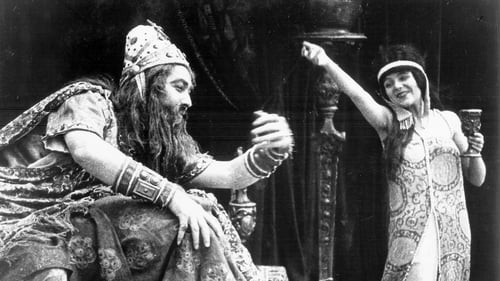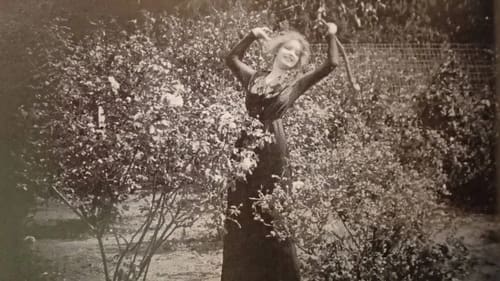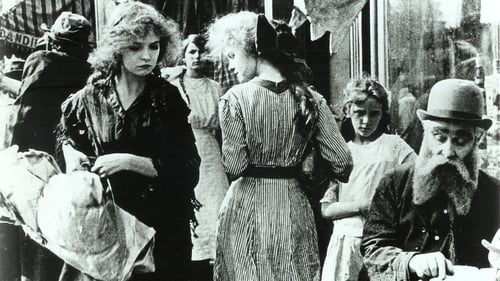
Choreographer
Clásico del cine mudo que muestra a través de varios episodios históricos las injusticias provocadas por la intolerancia religiosa y social. La idea inicial de Griffith era narrar las sangrientas huelgas de 1912 en EE.UU. (un huelguista es acusado de la muerte de su patrón), pero después decidió rodar tres episodios más: "La caída de Babilonia, "La Pasión de Cristo" y "La noche de San Bartolomé" (sangriento episodio de las luchas entre hugonotes y católicos que tuvo lugar en París en 1572). De presupuesto y recursos desmesurados para la época -una sola escena reunió a 15.000 extras y 250 carros- aún hoy sigue asombrando por su espectacularidad.

Betty Burnett
The first time that Jack was threatened with expulsion from college his Aunt Mary was much surprised and decidedly vexed -- mainly at the college. His family were less surprised, viewing the young man through a clearer atmosphere than his Aunt Mary ever had, and knowing that he had barely escaped similar experiences earlier in his career by invariably leaving school the day before the board of inquiry convened.

Margery Pennyfeather
Liberty Belles, silent comedy film from 1914 starring Dorothy Gish, Jack Pickford, and Gertrude Bambrick.

Assyrian Dancer
Griffith adapts the story of the Apocryphal Book of Judith to the screen. During the siege of the Jewish city of Bethulia by the Assyrian tyrant Holofernes, a widow named Judith forms a plan to stop the war as her people suffer in starvation, nearly ready to surrender.

The Lady in Black
Behold in this film the villain up to his dirty work again, but if you watch the persistent young hero carefully, you will see him gallantly rescue the lady in black about to be burned at the stake, while at the same time he saved the fair heroine from the mad ambition of her father about to marry her to the dastardly ex-governor of Utah.

Among Suffragette Minstrels
Two wives of Jenksville at least did not intend their husbands should be corrupted by the arrival of these enticing ladies in town. That show should be investigated. It resulted in their becoming one of the sensations of the performance, while the husbands became an awful example.

One of the Kids
In spite of their oversupply of energy, their Pa-to-be just doted on the kids. The fascinating traveling salesman, who won away their fickle Ma, did not, but through the widow's deception, the kids won the parent of their hearts.

Marguerite Fleischer
Quite harmless in themselves, but when Mrs. Ronald G. Saunders saw her faithless lord purchasing the innocent blossoms, she was for a divorce right away. Henceforth she would devote her life to charity. The fond one on whom the flowers were bestowed cast them forth. In her pursuit of uplifting the lowly, Mrs. Saunders found them, and the monster husband was at once transformed into a dear, kind, good one.

Female Apache Dancer
A young couple struggle to get ahead, the wife always assuaging the troubles of her melancholy husband. As he climbs the ladder of success, he abandons the homely values and begins an affair with a beautiful woman. His wife leaves him, returning to her mother's home where she bears a child. When the husband is abandoned by his lady friend, remorse drives him to find his wife.

Storybook Lover
Rose and her cousin Mary dwell in the land of romance, but real Romeos are scarce in this prosaic age. Yet Rose, in spite of a gay young Lothario who steps in the way of her own true love, finds her way to love-land. That was where Mary's perfidy came in. It showed up Lothario's true character, while at the same time it brought Mary back to her own determined young lover.

Gato's Sweetheart
This is the story of Gato, an Italian immigrant, who lives with his wife, Marie, and his younger brother, Giuseppe, on a small truck farm in the west. Gato becomes so intent on his work that he neglects to show his wife the little attentions she demands. A foppish wandering Italian, Sandro, sees in this an opportunity to work his ends, but is prevented by the timely interference of Giuseppe.

Non-Commital Woman
His dumb grief was mistaken for indifference at his mother's death-bed, but it was the non-committal lady who learned the truth. The favorite son came to woo and win her. She made fine biscuits. In the end, as is quite apt to be the case, the lady gave up herself and her accomplishments in a way quite unexpected.

The Maid
D.W. Griffith short intercuts two different stories before mixing them together at the end. The film focuses on a telephone girl (Mae Marsh) who leaves work for her lunch break at the same time as "The Lady" (Claire McDowell) goes to a jewelry store to pick up some priceless jewels. When the telephone girl returns to work she gets a phone call from the house of "The Lady" as a robbery (Harry Carey) has broken in and is trying to steal the jewels.

At Dance
A man recognizes the thief who had previously robbed him as one of the men involved in an unrelated mob shootout.

The Stenographer
Roy Norris, a young author, proposes to pretty Mary Ford and is accepted. The first year or more of their married life is one of bliss, made all the sweeter by the arrival of their first-born. The little trio, father, mother, baby, are bound together by love, until unreasonable jealousy possesses the young couple. While at work in his studio, the young author is visited by his wife just as he is complimenting his stenographer on her valuable aid, and from this the wife sees grounds tor suspicion. On the other hand, the young husband, seeing his wife talking to a stranger, becomes suspicious.

Backstage
Calumny is one of the most despicable crimes against our neighbor, and while the wife in this story acted conventionally, she nevertheless maligned the other woman simply because of her profession, an actress. While out on a shopping tour, the wife and her husband enter a store, leaving their little child in the auto in the care of the chauffeur. This gentleman pays but scant attention to the child, so the little one wanders off and strolls into the stage door of a theater during the matinee. The parents upon their return to the auto discover the child's absence and trace him to the theater stage, where they find him in the arms of one of the show girls. The mother matches the child from the girl's arms, scornfully exclaiming, "How dare you contaminate my child with your touch?" For this remark, together with the derisive laughter it occasions, the girl vows to be avenged.















